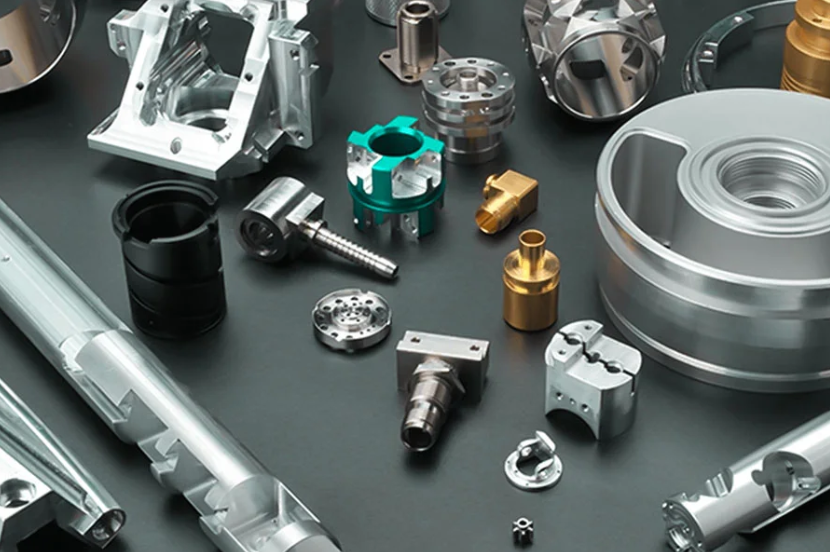Selecting the Best CNC Machining Materials for Manufacturing

Introduction to CNC Machining
CNC machining is a widely used manufacturing process that relies on computer-controlled machines to produce precision components. This technology allows manufacturers to create complex designs with high accuracy and consistency. A crucial factor that influences the quality and performance of machined components is the selection of cnc machining materials. Choosing the right materials ensures durability, strength, and suitability for specific applications.
Understanding CNC Machining Materials
CNC machining materials can be broadly divided into metals, plastics, and composites. Each category offers unique properties, making them suitable for particular applications.
Metal Materials
Metals are preferred for their strength, durability, and resistance to heat. Common metals used in CNC machining include:
- Aluminum: Lightweight, corrosion-resistant, and easy to machine, making it ideal for aerospace, automotive, and electronic applications.
- Stainless Steel: Offers high strength and excellent resistance to corrosion, suitable for medical instruments, food processing equipment, and structural parts.
- Brass: Known for its machinability and corrosion resistance, often used in fittings, decorative items, and electrical components.
- Titanium: Extremely strong yet lightweight, frequently used in aerospace, medical implants, and high-performance automotive components.
Plastic Materials
Plastics are chosen when lightweight, chemical-resistant, or electrically insulating properties are required. Common plastic cnc machining materials include:
- Acrylic: Transparent and easy to shape, used in signage, displays, and protective covers.
- Nylon: Strong and wear-resistant, ideal for mechanical parts such as gears and bushings.
- Polycarbonate: Provides high impact resistance, commonly used in electronics, safety equipment, and lenses.
- Acetal (Delrin): Offers dimensional stability and low friction, suitable for precision mechanical components.
Composite Materials
Composite materials combine two or more substances to achieve enhanced properties, such as higher strength-to-weight ratios. Carbon fiber reinforced plastics and fiberglass are common examples. These materials are widely used in aerospace, automotive, and sporting equipment due to their strength, durability, and lightweight nature.
Factors to Consider When Selecting Materials
Choosing suitable cnc machining materials requires careful evaluation of several factors to ensure optimal performance.
Mechanical Properties
The strength, hardness, flexibility, and toughness of a material are essential to withstand operational stress. Metals like titanium and stainless steel provide high strength, whereas plastics such as nylon offer flexibility and shock absorption.
Machinability
Machinability affects how easily a material can be cut or shaped. Highly machinable materials, such as aluminum and brass, reduce tool wear and production time. Harder metals require specialized tools and careful machining techniques.
Thermal and Chemical Resistance
Components exposed to heat or corrosive environments need materials that maintain their integrity under such conditions. Stainless steel and polycarbonate are ideal choices due to their thermal and chemical stability.
Cost and Availability
Budget constraints often influence material selection. While high-performance metals like titanium offer superior properties, they may not be cost-effective for all projects. Balancing cost with performance is key to efficient production.
Benefits of Using High-Quality Materials
Selecting the right cnc machining materials provides several advantages:
- Precision: Consistent material properties reduce deformation and allow for tighter tolerances.
- Durability: Strong, wear-resistant materials enhance the lifespan of components.
- Design Flexibility: Suitable materials allow complex designs and intricate geometries.
- Cost Efficiency: Using appropriate materials can minimize tool wear, machining time, and maintenance expenses.
See also: The Future of Remote Work: Tech Tools That Make It Possible
Applications of CNC Machining Materials
CNC machining materials are essential across a wide range of industries, each requiring specific properties for optimal results.
Aerospace Industry
Lightweight metals like aluminum and titanium are widely used in aircraft structures, engine components, and landing gear due to their excellent strength-to-weight ratios.
Automotive Industry
Metals and plastics are employed in engines, transmissions, and interior components. High-strength alloys ensure durability and performance under mechanical and thermal stress.
Medical Industry
Biocompatible metals such as titanium and stainless steel are used for implants, surgical instruments, and prosthetic devices. Plastics like polycarbonate and acetal provide chemical resistance and durability for medical applications.
Electronics and Technology
Lightweight metals and plastics are used for electronic housings, connectors, and heat sinks. Materials with good thermal conductivity and electrical insulation properties are essential for electronic components.
Future Trends in CNC Machining Materials
The demand for advanced materials continues to grow as technology evolves:
- Advanced Alloys: New metal alloys with improved strength, corrosion resistance, and machinability.
- Reinforced Composites: Greater use of carbon fiber and fiberglass for lightweight, high-strength applications.
- Eco-friendly Plastics: Development of sustainable plastics to reduce environmental impact.
- Smart Materials: Materials that adapt to environmental changes, enhancing the functionality of components.
Conclusion
Selecting the right cnc machining materials is critical for producing high-quality, durable, and cost-effective components. Metals, plastics, and composites each offer unique advantages suitable for specific applications. Understanding material properties, industry requirements, and manufacturing constraints helps ensure successful outcomes. With ongoing advancements in material science, CNC machining remains a versatile and essential tool for modern manufacturing.





